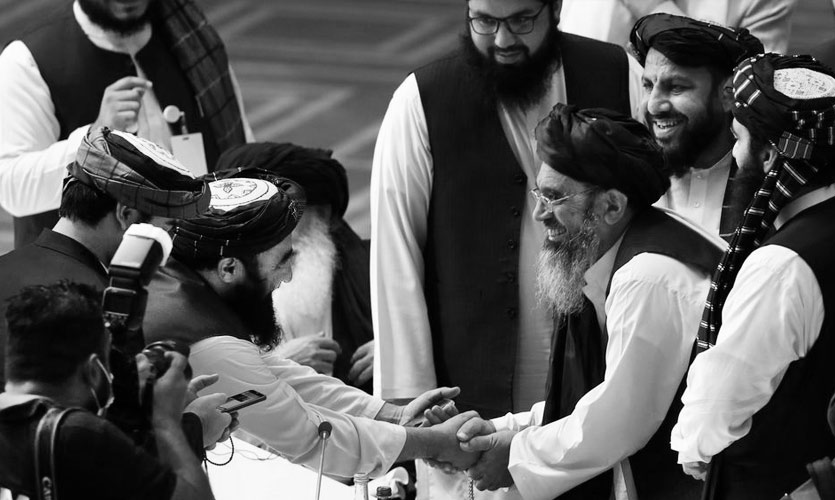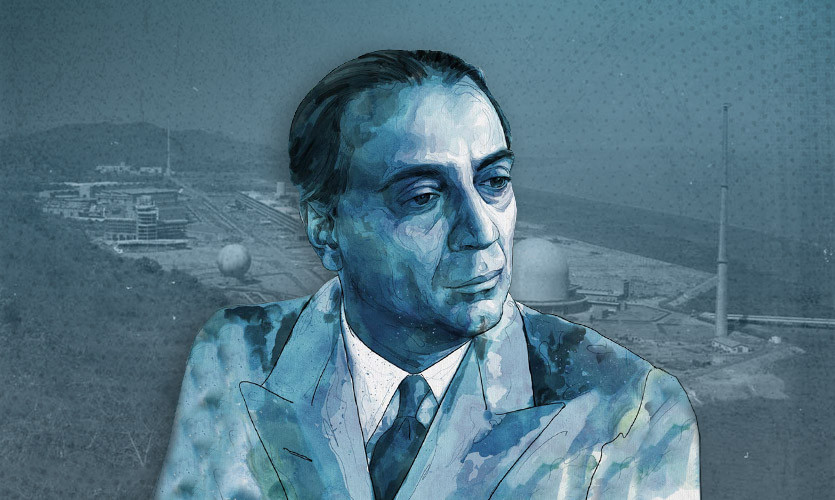Since the announcements of the US state secretary Antony Blinken and Afghan army chief Lt. General Wali Mohammad Ahmadzai’s visits to India, all eyes have been on New Delhi and its possible strategies for the region following the developments in Afghanistan.
While General Ahmadzai had to postpone his trip given the rising tension in Afghanistan, Antony Blinken’s much-anticipated meetings with national security advisor Ajit Doval, external affairs minister S. Jaishankar, Prime Minister Narendra Modi, and representatives of the Tibetan government in exile on Wednesday were largely successful. The only sense of hiccup was Blinken’s meeting with the lawyers and activists protesting against the controversial Citizenship (Amendment) Act, 2019 (CAA) and the three farm acts, which, as WION points out, are internal matters that the US has no business sitting in judgment of.
Although Blinken’s meetings with anti-CAA and farm laws activists, and Tibetan representatives are bound to excite further discussions and commentary both in China and India, his agenda largely covered concerns about COVID-19 vaccine hesitancy, Afghanistan, and the Quad’s objectives regarding several issues including operations in the Indo-Pacific region. Amid discussion on these topics, and whilst reiterating that violence is not the solution, Blinken said, “[The] US will remain engaged in Afghanistan even after troops withdrawal. We have not only a strong embassy there but also have important programmes that support the country economically through development and security assistance.” He further added, “We are very much engaged in the diplomacy of working to bring parties together at the table for the resolution of the conflict in Afghanistan.”
It seems that comments on all things Afghanistan have been deliberately kept under wraps owing either to something grave in store, or the lesser alternative of inaction. Some experts have pointed out that this might be the first time that Pakistan has not reacted to a Western delegation’s visit to India.
The US’ Exit And Why Pakistan Needs To Behave
Even though it might seem to be an immature exit, the fact of the matter is that the US does not need to have an on-ground presence in Afghanistan to be able to act. Former army officer, Major (retd.) Gaurav Arya states in his explainer with the Defensive Offence that just because the US does not have boots on the ground does not mean that it cannot take military actions from afar with its Hellfire missiles. Reportedly, Russia has also offered its Central Asia military bases to the US, which Pakistan’s prime minister Imran Khan has denied in his country. As per reports, the Taliban has taken over more than half of the districts in Afghanistan and has been inflicting atrocities on locals. It remains uncertain how the US is planning to respond, however, it is clear that the Afghan Taliban certainly do not need Pakistan.
Although there are established links between the Tehreek-i-Taliban Pakistan (TTP) and the Afghan Taliban, Pakistan seems to have little to no say in the happenings in Afghanistan. Pakistani interior minister Sheikh Rasheed has said that the Taliban fighters have homes and families in prominent areas of Pakistan including Islamabad, and are also provided treatment. According to recent reports, Pakistan’s Inter-Services Intelligence (ISI) agency asked the Taliban fighters in Afghanistan to target Indian-built infrastructure, which includes the parliament. Pakistan’s Lashkar-e-Taiba also allegedly has about 5000 of its personnel fighting alongside the Taliban in Afghanistan. While the country has played a pivotal role in sustaining the organisation, Pakistan seems to not have continuing influence and there is not much that it can do for the Taliban.
The Taliban has historically been bankrolled by various governments, various avenues like real estate, mining, extortion, selling drugs, and by certain charitable organisations and benevolent individuals. According to Mullah Yaqoob, son of the late Mullah Mohammed Omar, the Taliban brought in US$1.6 billion in the 2019-20 fiscal year. There are also places like Qatar where more than 20 high-ranking Taliban officials and their families, and several low-ranking officials, all led there by Mohammed Omar, reside peacefully. The Taliban saw Doha as a neutral ground to have a successful peace process and all parties, including the US, agreed. Even though the recent peace talks held in Doha did not yield the intended result, the Taliban have still managed to give Pakistan a lesson in having principles. Following the kidnapping of the Afghan ambassador to Pakistan Najibullah Alikhil’s daughter in Islamabad, the country has drawn additional flak globally, including from the Afghan Taliban. The Taliban in a statement confirmed that it had nothing to do with the kidnapping and condemned the action. “We urge the government of Pakistan to step up its efforts to arrest and punish the perpetrators so that such acts do not give rise to hate between the two nations and the spoilers don’t have ground to misuse it,” said Suhail Shaheen, spokesperson for Taliban’s political office in Doha.
While the Taliban has been advancing, the Afghan army has managed to defend Herat and Kabul and recapture some districts. It stands a good chance with a handful of US and NATO troops still active and continuing airstrikes. According to a report by the Congressional Research Service, the Afghan army’s strength as of January 2021 stands at 307,000 against 60,000 full-time Taliban fighters. The report also mentions that as decided under the Trump administration, the Biden government will also continue to tackle terrorism in Afghanistan. “We’ll reorganize our counterterrorism capabilities and the substantial assets in the region to prevent [the] reemergence of terrorists — of the threat to our homeland from over the horizon,” said Biden in his remarks on April 14.
As stated by Blinken, a peaceful way forward is the only lasting solution. War in Afghanistan would be draining for the Indian subcontinent but going further, has the potential of spilling over into Pakistan bringing annihilation for the country. As Major Arya points out in his interview, with China expressing its disappointment and discontent for Pakistan’s functioning following the attack on Chinese engineers in the Khyber Pakhtunkhwa Province earlier this month, this might work out well for India.
China’s Play
On July 14, a group of nine engineers from China was among the 13 killed in a bus accident caused by an explosion in the Kohistan region of Khyber Pakhtunkhwa. As per Mint, after the Pakistani government initially denied claims of terrorism and cited mechanical failure as responsible for the incident, Chinese investigators accompanied by Pakistani investigators found evidence of explosives, concluding that terrorism cannot be ruled out.
Chinese engineers and labourers regularly travel to Pakistan to work on the China-Pakistan Economic Corridor (CPEC), which is a $65 billion investment project for China to link its western region to the Gwadar port in Pakistan. Announced in 2015 as part of Beijing’s Belt and Road Initiative (BRI), the CPEC has been stalled repeatedly, with significant deceleration in recent years owing to the Imran Khan government’s “inefficiency and incompetence”. The attack on Chinese nationals is expected to further deteriorate the progress of CPEC projects.
The US has proactively or perhaps naïvely championed peace for the region, making efforts to bring both the Afghan Taliban and the government to the table. Strangely, so has China, with the Chinese foreign minister Wang Yi stating that all sides should “maintain the momentum of intra-Afghan talks” and that “China is ready to work with all stakeholders of Afghanistan”.
China also has a vested interest in Afghanistan. While the narrow Wakhan Corridor connecting China and Afghanistan is a navigational hazard, with the Taliban’s support in quashing the East Turkestan Islamic Movement in Xinjiang, China can gain easy access into the country as well as Central Asia, no longer requiring Pakistan. Although keeping the peace is the priority for both China and the US, the former has little to lose if the Taliban were to become the prevailing force. The ongoing visit of the Taliban delegation to Tianjin, China has not only thrown the spotlight on the group but also provided them with much-craved legitimisation. Foreign minister Yi stated, according to spokesperson Zhao Lijian, “the Afghan Taliban is an important military and political force in Afghanistan and is expected to play an important role in the country’s peace, reconciliation and reconstruction process.”
While the move is a definite power play by China, there is little cause for Indian concern. Despite the pandemic and border skirmishes, India and China registered trade worth US$77.67 billion from January to December 2020. The bilateral trade for the first six months of 2021 has been reported to be US$57.48 billion, growing 62.7 percent. Since India is one of the biggest beneficial trade partners for China, it is highly unlikely that China will make a move starkly against India’s interests. Even so, now is the time for India to act.
India’s Time To Shine
India has prided itself in not having an “expeditionary army”, i.e., only using military force to defend its security. Besides having a chance at restoring stability in Afghanistan, it is also a way for India to cement its place as a global superpower. As Major Arya explains in his interview with Canada’s Tag TV, by putting a strong foot forward in terms of military support to the Afghan government, India can secure its place as a permanent member of the UN Security Council. Not only will it establish India as a valuable contender (all permanent members have a long colonial and violent history, and just as many perks) but can also become a big step toward resolving other issues in the Indian subcontinent.
Although Pakistan’s cooperation in aiding the US during and post-cold war was critical, it has now become an entity all parties, including China, can do without. The looming threat of Pashtun nationalism on both sides of the Durand Line (a border which is not recognised by the Afghan government and the Taliban till date) with the Pashtun Tahafuz Movement, unrest among the Baloch nationalist groups over separating lands for CPEC project for security purposes, and the TTP and LeT related threats have created bigger concerns for Pakistan. Additionally, as established, the Afghan Taliban does not require Pakistan’s support for international recognition any longer. Speaking about the narrative against India, local Pakistani journalists afraid for their safety refuse to comment on it. While the media narrative is available for all to see, an increase in abductions of media persons and activists is not. Local sources refuse to officially attest to this fact.
With it increasingly becoming a source of cash drain and little benefit for China and being of lesser strategic importance to both Russia and the US, it will be interesting and almost irrelevant to see what moves Pakistan has in store concerning Afghanistan.
Even though civilian casualties in Afghanistan are at a record high, updated reports of China’s pursuance of a “non-interference” policy and the US state secretary Blinken’s statement that Chinese interest in the region could be “positive”, seem to portray a healthier future for the region, for all but one nation.
Considering India acts with Western support from the shadows, albeit we would do well to remember that most of the allies do not have permanent friends, only interests.
The Horus Eye is a weekly column written by Divya Bhan analysing current affairs and policies. This column does not intend or aim to promote any ideology and does not reflect the official position of The Sparrow.
Also read: Is Mass Surveillance In India A Precursor To An “Orwellian” State?
Also read: Does The Demand For A Uniform Civil Code Overlook India’s Religious Freedom?










